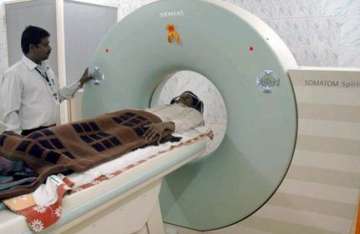From long-term cancer risks to radiation overdose mistakes, CT scans pose a growing danger to the public and need more regulation to improve their safety, imaging experts have noted in a leading medical journal.
The articles in New England Journal of Medicine come a week after a story by AP detailed the overuse of imaging tests and how much the average American's radiation dose has grown in recent years.
CT scans are super-sharp X-rays that have transformed medicine by helping doctors quickly diagnose or rule out injuries and diseases. But they use far more radiation than ordinary X-rays, and too much radiation raises the risk of cancer over time.
The federal Food and Drug Administration and Congress are considering new measures to help prevent medical mistakes -- relatively rare cases where some people are accidentally given radiation overdoses.
However, far more people face potential long-term harm from ordinary scans that are done correctly but that are overused, repeated or simply unnecessary.
Each year, 10 per cent of the US population gets a CT scan, and use of this imaging is growing more than 10 per cent per year.
“That's really the area we should focus on,” said the author of one of the articles, Dr Rebecca Smith-Bindman. She is a radiologist at the University of California at San Francisco on temporary leave to do radiation research at the National Cancer Institute.
The FDA regulates scanning equipment, but lacks authority to say how doctors use it, or when tests are appropriate. No federal standards exist for how much radiation a CT scan should use, and a study Smith-Bindman led found a 13-fold variation in the dose that patients at four California hospitals received for the same type of scan.
Latest India News
